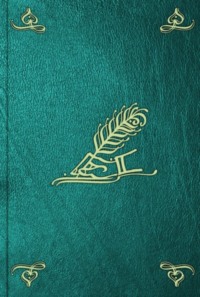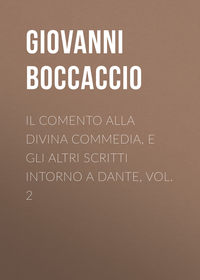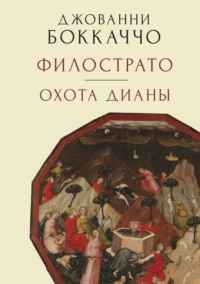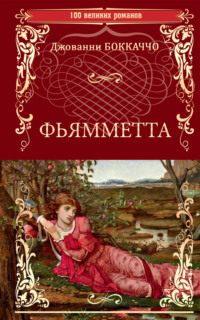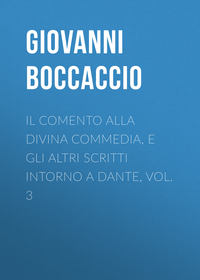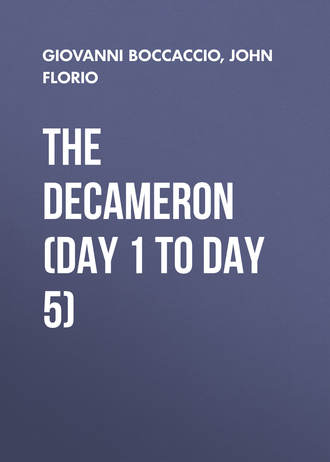 полная версия
полная версияThe Decameron (Day 1 to Day 5)
Honest man, I have often heard it reported by many, that thou art very skilfull, and in cases concerning God, thou goest beyond all other of these times: wherefore, I would gladly be informed by thee, which of those three Lawes or Religions, thou takest to be truest; that of the Jew, the other of the Sarazen, or that of the Christian? The Jew, being a very wise man, plainly perceived, that Saladine sought to entrap him in his answer, and so to raise some quarrell against him. For, if he commended any one of those Lawes above the other, he knew that Saladine had what he aymed at. Wherefore, bethinking himselfe to shape such an answer, as might no way trouble or entangle him: summoning all his sences together, and considering, that dallying with the Soldane might redound to his no meane danger, thus he replied.
My Lord, the question propounded by you, is faire and worthy, & to answer mine opinion truly thereof, doth necessarily require some time of consideration, if it might stand with your liking to allow it: but if not, let me first make entrance to my reply, with a pretty tale, and well worth the hearing. I have oftentimes heard it reported, that (long since) there was a very wealthy man, who (among other precious Jewels of his owne) had a goodly Ring of great valew; the beauty and estimation whereof, made him earnestly desirous to leave it as a perpetuall memory and honour to his successors. Whereupon, he willed and ordained, that he among his male children, with whom this Ring (being left by the Father) should be found in custody after his death; hee and none other was to bee reputed his heire, and to be honoured and reverenced by all the rest, as being the prime and worthiest person. That Sonne, to whom this Ring was left by him, kept the same course to his posterity, dealing (in all respects) as his predecessor had done; so that (in short time) the Ring (from hand to hand) had many owners by Legacie.
At length, it came to the hand of one, who had three sonnes, all of them goodly and vertuous persons, and verie obedient to their Father: in which regard, he affected them all equally, without any difference or partiall respect. The custome of this ring being knowne to them, each one of them (coveting to beare esteeme above the other) desired (as hee could best make his meanes) his father, that in regard he was now grown very old, he would leave that Ring to him, whereby he should bee acknowledged for his heire. The good man, who loved no one of them more then the other, knew not how to make his choise, nor to which of them he should leave the Ring: yet having past his promise to them severally, he studied by what meanes to satisfie them all three. Wherefore, secretly having conferred with a curious and excellent Goldsmith, hee caused two other Rings to bee made, so really resembling the first made Ring, that himself (when he had them in his hand) could not distinguish which was the right one.
Lying upon his death-bed, and his Sonnes then plying him by their best opportunities, he gave to each of them a Ring. And they (after his death) presuming severally upon their right to the inheritance & honour, grew to great contradiction and square: each man producing then his Ring, which were so truly all alike in resemblance, as no one could know the right Ring from the other. And therefore, suite in Law, to distinguish the true heire to his Father; continued long time, and so it dooth yet to this very day. In like manner my good Lord, concerning those three Lawes given by God the Father, to three such people as you have propounded: each of them do imagine that they have the heritage of God, and his true Law, and also duely to performe his Commandements; but which of them do so indeede, the question (as of the three Ringes) is yet remaining.
Saladine well perceyving, that the Jew was too cunning to be caught in his snare, and had answered so well, that to doe him further violence, would redound unto his perpetuall dishonour; resolved to reveale his neede and extremity, and try if he would therein friendly sted him. Having disclosed the matter, and how he purposed to have dealt with him, if he had not returned so wise an answer; the Jew lent him so great a sum of money as hee demanded, and Saladine repayed it againe to him justly, giving him other great gifts beside: respecting him as his especiall friend, and maintaining him in very honourable condition, neere unto his owne person.
A Monke, having committed an offence, deserving to be very grievously punished; freede himselfe from the paine to be inflicted on him, by wittily reprehending his Abbot, with the very same faultThe fourth Novell
Wherein may be noted, that such men as will reprove those errors in others, which remaine in themselves, commonly are the Authors of their owne reprehensionSo ceased Madam Philomena, after the conclusion of her Tale, when Dioneus sitting next unto her, (without tarrying for any other command from the Queene, knowing by the order formerly begunne, that he was to follow in the same course) spake in this manner.
Gracious Ladies, if I faile not in understanding your generall intention; we are purposely assembled here to tell Tales, and especially such as may please our selves. In which respect, because nothing should be done disorderly, I hold it lawfull for every one (as our Queene decreed before her dignity) to relate such a novelty, as (in their owne judgement) may cause most contentment. Wherefore having heard, that by the good admonitions of Jehannot de Chevigny, Abraham the Jew was advised to the salvation of his soule, and Melchisedech (by his witty understanding) defended his riches from the traines of Saladine: I now purpose to tell you in a few plaine words, (without feare of receiving any reprehension) how cunningly a Monke compassed his deliverance, from a punishment intended towards him.
There was in the Country of Lunigiana (which is not farre distant from our owne) a Monastery, which sometime was better furnished with holinesse and Religion, then nowadayes they are; wherein lived (among divers other) a young novice Monke, whose hot and lusty disposition (being in the vigour of his yeeres) was such, as neither fastes nor prayers had any great power over him. It chanced on a fasting day about high noone, when all the other Monkes were asleepe in their Dormitaries or Dorters, this frolicke Friar was walking alone in their Church, which stood in a very solitary place, where ruminating on many matters by himselfe, hee espied a pretty hansome wench (some Husbandmans daughter in the Countrey, that had beene gathering rootes and hearbes in the field) uppon her knees before an Altar, whom he had no sooner seene, but immediately hee felt effeminate temptations, and such as ill fitted with his profession.
Lascivious desire, and no religious devotion, made him draw neere her, and whether under shrift (the onely cloake to compasse carnall affections) or some other as close conference, to as pernicious and vile a purpose, I know not: but so farre he prevailed upon her frailety, and such a bargaine passed betweene them, that (from the Church) he wonne her to his Chamber, before any person could perceive it. Now, while this yong lusty Monke (transported with over-fond affection) was more carelesse of his dalliance, then he should have beene; the Lord Abbot, being newly arisen from sleepe, and walking softly about the Cloyster, came to the Monkes Dorter doore, where hearing what noyse was made between them, and a feminine voyce, more strange then hee was wont to heare; he layed his eare close to the Chamber doore, and plainly perceived, that a woman was within. Wherewith being much moved, he intended suddenly to make him open the doore; but (upon better consideration) hee conceived it farre more fitting for him, to returne backe to his owne chamber, and tary untill the Monke should come forth.
The Monke, though his delight with the Damosel was extraordinary, yet feare and suspition followed upon it: for, in the very height of all his wantonnesse, he heard a soft treading about the doore. And prying thorow a small crevice in the same doore, perceived apparantly, that the Abbot himselfe stood listening there, and could not be ignorant, but that the Maide was with him in the Chamber. As after pleasure ensueth paine, so the veneriall Monke knew well enough (though wanton heate would not let him heede it before) that most greevous punishment must be inflicted on him; which made him sad beyond all measure. Neverthelesse, without disclosing his dismay to the young Maiden, he began to consider with himselfe on many meanes, whereby to find out one that might best fit his turne. And suddenly conceited an apt stratagem, which sorted to such effect as he would have it: whereupon seeming satisfied for that season, hee tolde the Damosell, that (being carefull of her credit) as he had brought her in unseen of any, so he would free her from thence again, desiring her to tarrie there (without making any noyse at all) until such time as he returned to her.
Going forth of the Chamber, and locking it fast with the key, he went directly to the Lord Abbots lodging, and delivering him the saide key (as every Monke used to doe the like, when he went abroade out of the Convent) setting a good countenance on the matter, boldly saide; My Lord, I have not yet brought in all my part of the wood, which lieth ready cut downe in the Forrest; and having now convenient time to doe it, if you please to give me leave, I will goe and fetch it. The Abbot perswading himselfe, that he had not beene discovered by the Monke, and to be resolved more assuredly in the offence committed; being not a little jocund of so happy an accident, gladly tooke the key, and gave him leave to fetch the wood.
No sooner was he gone, but the Abbot beganne to consider with himselfe, what he were best to doe in this case, either (in the presence of all the other Monkes) to open the Chamber doore, that so the offence being knowne to them all, they might have no occasion of murmuring against him, when he proceeded in the Monkes punishment; or rather should first understand of the Damosell her selfe, how, and in what manner shee was brought thither. Furthermore, he considered, that shee might be a woman of respect, or some such mans daughter, as would not take it well, to have her disgraced before all the Monkes. Wherefore he concluded, first to see (himselfe) what shee was, and then (afterward) to resolve upon the rest. So going very softly to the Chamber, and entring in, locked the doore fast with the key, when the poore Damosell thinking it had beene the gallant young Monke; but finding it to be the Lord Abbot, shee fell on her knees weeping, as fearing now to receive publike shame, by being betrayed in this unkinde manner.
My Lord Abbot looking demurely on the Maide, and perceiving her to be faire, feate, and lovely; felt immediately (although he was olde) no lesse spurring on to fleshly desires, then the young Monke before had done; whereupon he beganne to conferre thus privately with himselfe. Why should I not take pleasure, when I may freely have it? Cares and molestations I endure every day, but sildome find such delights prepared for me. This is a delicate sweete young Damosell, and here is no eye that can discover me. If I can enduce her to doe as I would have her, I know no reason why I should gaine-say it. No man can know it, or any tongue blaze it abroade; and sinne so concealed, is halfe pardoned. Such a faire fortune as this is, perhaps hereafter will never befall me; and therefore I hold it wisedome, to take such a benefit when a man may enjoy it.
Upon this immodest meditation, and his purpose quite altered which he came for; he went neerer to her, and very kindly began to comfort her, desiring her to forbeare weeping, and (by further insinuating speeches) acquainted her with his amorous intention. The Maide, who was made neither of yron nor diamond, and seeking to prevent one shame by another, was easily wonne to the Abbots will, which caused him to embrace and kisse her often.
Our lusty young novice Monke, whom the Abbot imagined to be gone for wood, had hid himselfe aloft upon the roofe of the Dorter, where, when he saw the Abbot enter alone into the Chamber, hee lost a great part of his former feare, promising to himselfe a kinde of perswasion, that somewhat would ensue to his better comfort; but when he beheld him lockt into the Chamber, then his hope grew to undoubted certainty. A little chincke or crevice favoured him, whereat he could both heare and see, whatsoever was done or spoken by them: so, when the Abbot thought hee had staide long enough with the Damosell, leaving her still there, and locking the doore fast againe, hee returned thence to his owne Chamber.
Within some short while after, the Abbot knowing the Monke to be in the Convent, and supposing him to be lately returned with the wood, determined to reprove him sharpely, and to have him closely imprisoned, that the Damosell might remaine solie to himselfe. And causing him to be called presently before him, with a very stearne and angry countenance giving him many harsh and bitter speeches, commanded, that he should be clapt in prison.
The Monke very readily answered, saying. My good Lord, I have not yet beene so long in the order of Saint Benedict, as to learne all the particularities thereto belonging. And beside Sir, you never shewed mee or any of my brethren, in what manner we young Monkes ought to use women, as you have otherwise done for our custome of prayer and fasting. But seeing you have so lately therein instructed mee, and by your owne example how to doe it: I heere solemnely promise you, if you please to pardon me but this one error, I will never faile therein againe, but dayly follow what I have seene you doe.
The Abbot, being a man of quicke apprehension, perceived instantly by this answere; that the Monke not onely knew as much as he did, but also had seene (what was intended) that hee should not. Wherefore, finding himselfe to be as faulty as the Monke, and that hee could not shame him, but worthily had deserved as much himselfe; pardoning him, and imposing silence on eithers offence: they convayed the poore abused Damosell forth of their doores, she purposing (never after) to transgresse in the like manner.
The Lady Marquesse of Montferrat, with a Banquet of Hennes, and divers other gracious speeches beside, repressed the fond love of the King of FranceThe fift Novell
Declaring, that wise and vertuous Ladies, ought to hold their chastitie in more esteeme, then the greatnesse and treasures of Princes: and that a discreete Lord should not offer modestie violenceThe tale reported by Dioneus, at the first hearing of the Ladies, began to rellish of some immodestie, as the bashfull blood mounting up into their faces, delivered by apparant testimonie. And beholding one another with scarse-pleasing lookes, during all the time it was in discoursing, no sooner had hee concluded: but with a fewe milde and gentle speeches, they gave him a modest reprehension, and meaning to let him know, that such tales ought not to be tolde among women. Afterward, the Queene commaunded Madame Fiammetta, (sitting on a banke of flowers before her) to take her turne as next in order: and she, smiling with such a virgin-blush, as very beautifully became her, began in this manner.
It is no little joy to me, that wee understand so well (by the discourses already past) what power consisteth in the delivery of wise and ready answeres; And because it is a great part offence and judgement in men, to affect women of great birth and quality, then themselves, as also an admirable fore-sight in women, to keepe off from being surprized in love, by Lords going beyond them in degree: a matter offereth it selfe to my memory, well deserving my speech and your attention, how a Gentlewoman (both in word and deede) should defend her honour in that kind, when importunity laboureth to betray it.
The Marquesse of Montferrat was a worthy and valiant Knight, who being Captaine Generall for the Church, the necessary service required his company on the Seas, in a goodly Army of the Christians against the Turkes. Upon a day, in the Court of King Philip, sirnamed the one eyed King (who likewise made preparation in France, for a royall assistance to that expedition) as many speeches were delivered, concerning the valour and manhood of this Marquesse: it fortuned, that a Knight was then present, who knew him very familiarly, and hee gave an addition to the former commendation, that the whole world contained not a more equall couple in mariage, then the Marquesse & his Lady. For, as among all Knights, the Marquesse could hardly be paraleld for Armes and honour; even so his wife, in comparison of all other Ladies, was scarcely matchable for beauty and vertue. Which words were so waighty in the apprehension of King Philip, that suddainly (having as yet never seene her) he began to affect her very earnestly, concluding to embarque himselfe at Gennes or Genoua, there to set forward on the intended voyage, and journeying thither by land: hee would shape some honest excuse to see the Lady Marquesse, whose Lord being then from home, opinion perswaded him over-fondly, that he should easily obtaine the issue of his amorous desire.
When hee was come within a dayes journey, where the Lady Marquesse then lay; he sent her word, that she should expect his company on the morrow at dinner. The Lady, being singularly wise and judicious; answered the Messenger, that she reputed the Kings comming to her, as an extraordinary grace and favour, and that hee should be most heartily welcome. Afterward, entring into further consideration with her selfe, what the King might meane by this private visitation, knowing her husband to be from home, and it to be no meane barre to his apter entertainement: at last she discreetly conceited (and therein was not deceived) that babling report of her beauty and perfections, might thus occasion the Kings comming thither, his journy lying else a quite contrary way. Notwithstanding, being a Princely Lady, and so loyall a wife as ever lived, shee intended to give him her best entertainement: summoning the chiefest Gentlemen in the Country together, to take due order (by their advise) for giving the King a gracious welcome. But concerning the dinner, and diet for service to his table; that remained onely at her owne disposing.
Sending presently abroade, and buying all the Hennes that the Country afforded; shee commaunded her Cookes, that onely of them (without any other provision beside) they should prepare all the services that they could devise. On the morrow, the King came according to his promise, and was most honourable welcommed by the Lady, who seemed in his eye (farre beyond the Knights speeches of her) the fairest creature that ever he had seene before; whereat he mervailed not a little, extolling her perfections to be peerelesse, which much the more enflamed his affections, and (almost) made his desires impatient. The King being withdrawne into such Chambers, as orderly were prepared for him, and as beseemed so great a Prince: the houre of dinner drawing on, the King and the Lady Marquesse were seated at one Table, and his attendants placed at other tables, answerable to their degrees of honour.
Plenty of dishes being served in, and the rarest wines that the Countrey yeelded, the King had more minde to the faire Lady Marquesse, then any meate that stood on the Table. Neverthelesse, observing each service after other, and that all the Viands (though variously cooked, and in divers kindes) were nothing else but Hennes onely; he began to wonder, and so much the rather, because he knew the Countrey to be of such quality, that it affoorded all plenty both of Fowles and Venyson: beside, after the time of his comming was heard, they had respite enough, both for hawking and hunting; and therefore it encreased his marvell the more, that nothing was provided for him, but Hennes onely: wherein to be the better resolved, turning a merry countenance to the Lady, thus he spake. Madam, are Hennes onely bred in this Countrey, and no Cockes? The Lady Marquesse, very well understanding his demand, which fitted her with an apt opportunity, to thwart his idle hope, and defend her owne honour; boldly returned the King this answere. Not so my Lord, but women and wives, howsoever they differ in garments and graces one from another; yet notwithstanding, they are all heere as they be in other places.
When the King heard this reply, he knew well enough the occasion of his Henne dinner, as also, what vertue lay couched under her answer; perceiving apparantly, that wanton words would prove but in vaine, and such a woman was not easily to be seduced; wherefore, as hee grew enamored on her inconsiderately, so he found it best fitting for his honour, to quench this heate with wisedome discreetely. And so, without any more words, or further hope of speeding in so unkingly a purpose, dinner being ended, by a sudden departing, he smoothly shadowed the cause of his comming, and thanking her for the honour shee had done him, commended her to her chaste disposition, and posted away with speede to Gennes.
An honest plaine meaning man, (simply and conscionably) reprehended the malignity, hypocrisie, and misdemeanour of many Religious personsThe sixt Novell
Declaring, that in few, discreete, and well placed words, the covered craft of Church-men may be justly reproved, and their hypocrisie honestly discoveredMadam Æmilia sitting next to the gentle Lady Fiammetta, perceiving the modest chastisement, which the vertuous Lady Marquesse had given to the King of France, was generally graced by the whole Assembly; began (after the Queene had thereto appointed her) in these words. Nor will I conceale the deserved reprehension, which an honest simple lay-man, gave to a covetous holy Father, in very few words; yet more to be commended, then derided.
Not long since (worthy Ladies) there dwelt in our owne native City, a Friar Minor, an Inquisitor after matters of Faith, who, although he laboured greatly to seeme a sanctified man, and an earnest affecter of Christian Religion, (as all of them appeare to be in outward shew;) yet he was a much better Inquisitor after them, that had their purses plenteously stored with money, then of such as were slenderly grounded in Faith. By which diligent continued care in him, he found out a man, more rich in purse, then understanding; and yet not so defective in matters of faith, as misguided by his owne simple speaking, and (perhaps) when his braine was well warmed with wine, words fell more foolishly from him, then in better judgement they could have done.
Being on a day in company, (very little differing in quality from himselfe) he chanced to say; that he had beene at such good wine, as God himselfe did never drinke better. Which words (by some Sicophant then in presence) being carried to this curious Inquisitor, and he well knowing, that the mans faculties were great, and his bagges swolne up full with no meane abundance: cum gladiis & fustibus; With Booke, Bell, and Candle, he raysed an hoast of execrations against him, and the Sumner cited him with a solemne Processe to appeare before him, understanding sufficiently, that this course would sooner fetch money from him, then amend any misbeliefe in the man; for no further reformation did he seeke after.
The man comming before him, he demanded, if the accusation intimated against him, was true or no? Whereto the honest man answered, that he could not denie the speaking of such words, and declared in what manner they were uttered. Presently the Inquisitor, most devoutly addicted to Saint John with the golden beard, saide; What? Doest thou make our Lord a drinker, and a curious quaffer of wines, as if he were a glutton, belly-god, or a Taverne haunter, as thou, and other drunkards are. Being an hypocrite, as thou art, thou thinkest this to be but a light matter, because it may seeme so in thine owne opinion: but I tell thee plainly, that it deserveth fire and faggot, if I should proceede in Justice to inflict it on thee: with these, and other such like threatning words, as also a very stearn and angry countenance, he made the man believe himselfe to be an Epicure, and that hee denied the eternity of the soule; whereby he fell into such a trembling feare, as doubting indeed, least he should be burned, that, to be more mercifully dealt withall, he rounded him in the eare, and (by secret means) so annointed his hands with Saint Johns golden grease, (a very singular remedy against the disease pestilentiall in covetous Priests, especially Friars Minors, that dare touch no money) as the case became very quickly altered.


